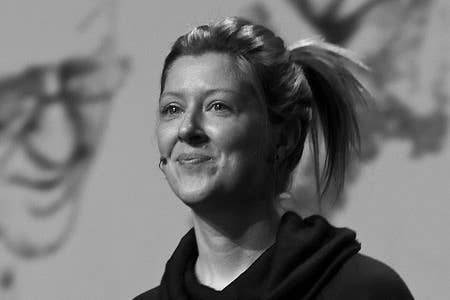Hunicke: Journey development plagued by unrealistic expectations
Producer says poor communication, feature creep and anger hurt production
Develop Robin Hunicke, who was producer on ThatGameCompany's Journey before leaving the studio for Glitch developer Tiny Speck, has detailed the obstacles and difficulties which the team experienced during the creation of the best-selling PSN title.
Speaking at GDC Europe on Tuesday, Hunicke was unswervingly honest in her assessment of the development process, telling her audience that unrealistic expectations - of both quality and staff endurance - combined with miscommunication, suppressed emotions and greed, had almost derailed the project at several points.
As reported from the show floor by Gamasutra, Hunicke's comments provide a rare insight into the pressures of development - especially for a small indie studio which cultivates such a cuddly reputation.
"Always, always talk to each other. It doesn't matter if you're two hundred people or ten - the risk is always great."
Robin Hunicke, Tiny Speck
"We were addicted to 'just in time' extensions." Gamasutra reports Hunicke saying. "The fact of the matter is we signed an unrealistic schedule believing, in our heart of hearts, it would probably be extended later, and we paid for that stress in the entire project.
"We were poor at extracting realistic individual estimations and people failed to confront the true costs of 'just in time' changes to the game. Managing a task list is a drag and if you're used to working on a team with 3 to 5 people, the amount of communication you need to do to keep designers and artists motivated and on the same page with you is really frustrating - it can feel like a straightjacket."
Realistic expectations of what you're able to produce are difficult, says Hunicke - no-body likes throwing away good ideas - but they're essential to an efficiently produced project.
"When you work on high pressure projects, you're bound to get into situations where you are angry and frustrated at the people you work with and it's impossible to hide that but it's often really difficult to confront it and process it in a way that gets resolved."
Robin Hunicke, Tiny Speck
"We had eyes that were much bigger than our stomachs," she continues. "While we were iterating, there were many ideas that we chucked. They just didn't seem right. Being attached to those features and ideas but being unwilling to expand the team or the process in ways that made them feasible in a realistic period of time was very costly to us.
"Not only did it wear down individual people on the team who felt the burden of being pressured to perform way more than they actually could, it eroded trust in the creative leadership of the game because it sounded crazy. The best way to avoid is to let some of your ideas, some of your best ideas, to not be implemented on this project."
ThatGameCompany experienced a high churn after finishing the critically acclaimed and highly commercially successful Journey, losing co-founder Kellee Santiago and Hunicke on the same day.

